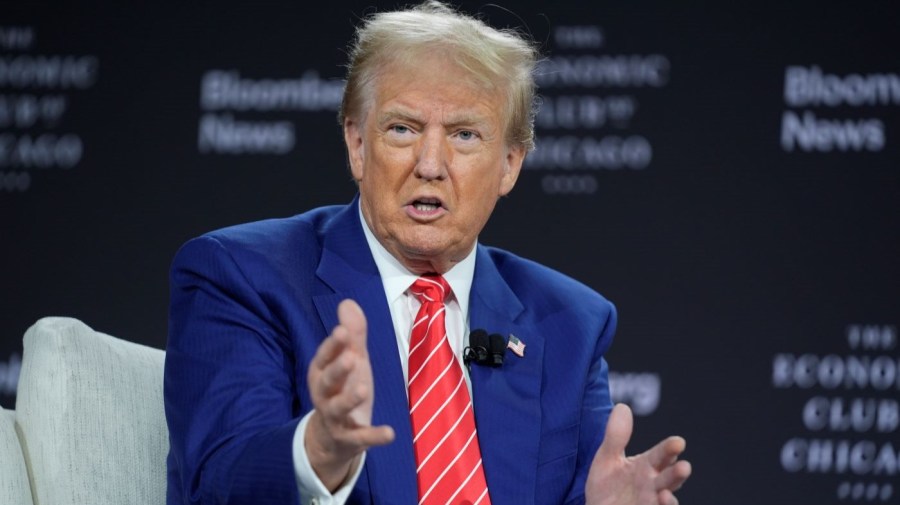Just In News
Attorneys for former President Trump on Thursday asked a judge to toss out his federal election subversion case by arguing that special counsel Jack Smith was unconstitutionally appointed.
The new motion, submitted to U.S. District Judge Tanya Chutkan, mimics the argument Trump made in Florida, which led a separate federal judge to toss the former president’s documents indictment.
That decision was an outlier, contrasting with courts that previously upheld the constitutionality of special counsels.
Now, Trump is hoping for the same luck in Washington, D.C., where he faces four felony charges for allegedly conspiring to subvert the 2020 election results. He has pleaded not guilty.
“The proposed motion establishes that this unjust case was dead on arrival — unconstitutional even before its inception,” Trump’s attorneys wrote.
Trump argues that Smith is not constitutionally appointed and funded because he wasn’t confirmed by the Senate. The defect requires the court to set aside all the special counsel’s actions, including the indictment, and block Smith’s office from any further spending, Trump’s lawyers assert.
Smith is due to respond in writing by Oct. 31, but his team has previously rejected such arguments. The Hill reached out to Smith’s spokesperson for comment.
In July, U.S. District Judge Aileen Cannon sided with Trump and threw out his federal classified documents case in Florida after determining Smith was not lawfully appointed. She said no legal statute gives an attorney general the authority to appoint a federal officer with the “kind of prosecutorial power wielded by Special Counsel Smith.”
Cannon’s ruling tossed the charges in that case, marking one of Trump’s biggest legal victories in his fight against his four criminal indictments. Smith is now appealing, though it is not expected to be resolved until well after the presidential election.
“The Attorney General validly appointed the Special Counsel, who is also properly funded,” Smith wrote in his appeal of Cannon’s decision. “In ruling otherwise, the district court deviated from binding Supreme Court precedent, misconstrued the statutes that authorized the Special Counsel’s appointment, and took inadequate account of the longstanding history of Attorney General appointments of special counsels.”
The decision by Cannon followed a road map laid out by Supreme Court Justice Clarence Thomas earlier this year. The conservative justice argued that, if Trump’s “unprecedented prosecution” was to proceed, it should be conducted by “someone duly authorized to do so by the American people.”
“The lower courts should thus answer these essential questions concerning the Special Counsel’s appointment before proceeding,” Thomas wrote in a solo, concurring opinion when the court ruled on Trump’s immunity defense.
Court Battles, News Read More
Author Profile
Latest entries
 HeadlinesOctober 24, 2024State senator dies following freak lawn mower accident
HeadlinesOctober 24, 2024State senator dies following freak lawn mower accident HeadlinesOctober 24, 2024Letter at center of Menendez brothers' bid for freedom called into question
HeadlinesOctober 24, 2024Letter at center of Menendez brothers' bid for freedom called into question HeadlinesOctober 24, 2024Ask a doctor: ‘Why are my ears ringing, and should I see a physician?’
HeadlinesOctober 24, 2024Ask a doctor: ‘Why are my ears ringing, and should I see a physician?’ HeadlinesOctober 24, 2024Trump camp says Dem rhetoric 'directly to blame' for past assassination attempts
HeadlinesOctober 24, 2024Trump camp says Dem rhetoric 'directly to blame' for past assassination attempts

